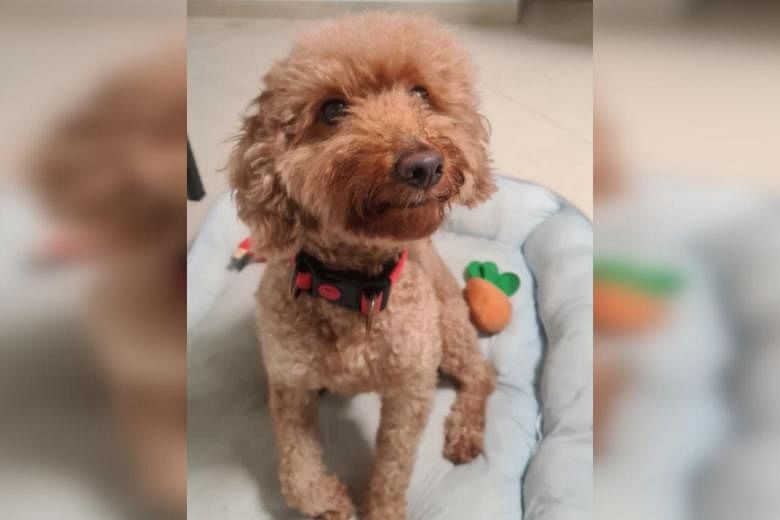SINGAPORE - In this column, veterinarians from the National Parks Board answer questions about pet health and behaviour.
Shipping pets from overseas
I have a five-month-old golden retriever puppy I want to ship from Jakarta to Singapore. My relatives there have done most of the vet check-ups and general vaccines, including the one for rabies. Can I collect my pet at the airport and arrange for it to be quarantined and vaccinated?
Lawrence Lam
Dr Christine Lee: Bringing a pet to Singapore is an exciting experience, but there are requirements and procedures to follow. These conditions are designed to ensure that imported animals are healthy while protecting the health of other animals and humans in Singapore.
The veterinary conditions for dogs depend on where they come from. Some conditions must be fulfilled within a specific time frame, so it is best to read them carefully when applying for the import permit.
Alternatively, consider engaging an Animal & Veterinary Service (AVS)-registered pet agent on the AVS website.
In a nutshell, the conditions include microchipping the animal, vaccinating it against rabies and other diseases such as canine distemper virus, canine parvovirus and canine adenovirus, testing for antibodies against rabies, and treating it for parasites before arriving in Singapore. A veterinary health certificate endorsed by the exporting country's official government vet must also be obtained.
On arrival in Singapore, AVS officers will examine the dog and check for the required documents at the Changi Animal & Plant Quarantine Station. You will need an AVS- designated transporter to take it to the Sembawang Animal Quarantine Station (SAQS) for quarantine.
During your dog's stay, AVS officers will check on it daily and provide it with exercise, food and water. You can also visit it and walk it at SAQS' exercise field.
You need to reserve a space for your dog at the quarantine facility, arrange its inspection and apply for both a dog and import licence in advance. You can find a full step-by-step guide on AVS' website.
Poodle has ear problem
Our 2½-year-old toy poodle Rocky has ear problems. His ears are painful and itchy. He is constantly shaking his head and trying to scratch his ears. He does not allow us to clean or touch his ears. He also bites his paws and back. What can we do to help him?
Saadhana and Raajeev Mathan
Dr Juline Chua: There are several reasons dogs develop an itch in their ears or on other parts of their body like their paws.
Some of the more common causes are irritation, allergies and infection such as bacteria, yeast, fungus or parasites.
Consult a vet to determine the underlying reasons for your dog's conditions as the vet will be able to thoroughly examine it, conduct tests to diagnose medical conditions and prescribe suitable medications for treatment.
He or she will also be able to advise on ways to alleviate the itch and make your pet feel more comfortable, as well as how to reduce the recurrence of such problems.
Some of these skin and ear conditions take time and possibly repeated visits to the vet to show improvement, so be patient and maintain open communication with your vet.
At the vet, it is also helpful to give information detailing your pet's past medical history, such as visits and treatments at other clinics, past parasite treatments administered, its current diet as well as shampoo or topical creams or solutions that are currently used.
When the underlying conditions are addressed and the itch and discomfort are better controlled, your pet's head-shaking, scratching, biting and aversion to touch or handling should also improve.
It is also advisable to gradually train and encourage Rocky to become comfortable with ear cleaning and handling by using positive reinforcement with rewards.
Dr Christine Lee and Dr Juline Chua are veterinarians at the Animal & Veterinary Service. Dr Lee graduated from the Royal Veterinary College in the United Kingdom. Dr Chua is involved in animal health-related policy work.
Have a query about your pet? E-mail it with clear, high-resolution pictures of at least 1MB, if any, and your full name to stlife@sph.com.sg. We reserve the right to edit and reject questions.


